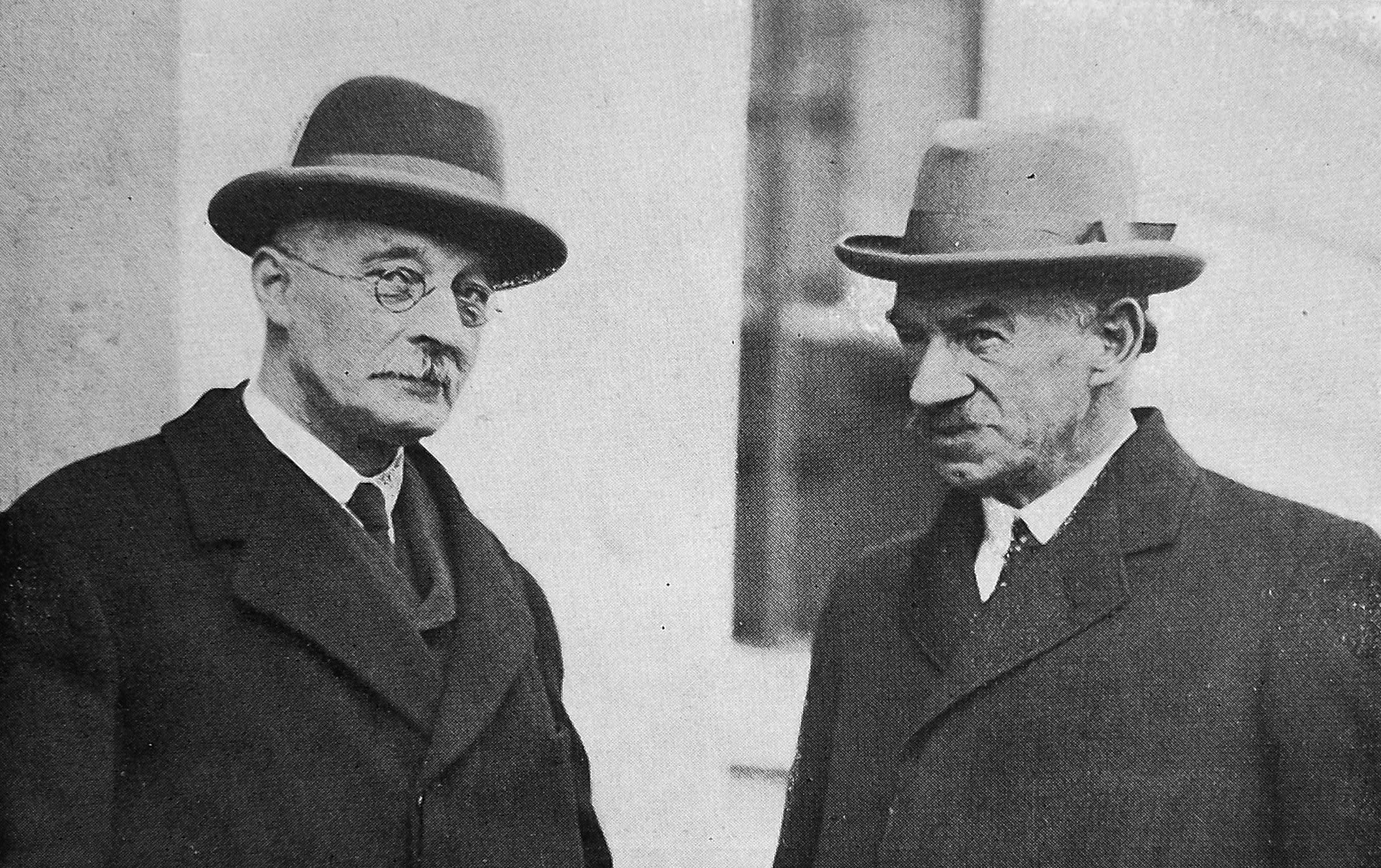The Royal Commission on University Education, consisting of Sir Harry Reichel (chairman) and Mr F. Tate, which opened its sittings here on Friday, continued to take evidence at Otago University yesterday morning and afternoon.
Professor Benham, Dean of the Faculty of Arts and Sciences, presented evidence on several matters on behalf of the Professorial Board. There is need for further development in most of the departments, in four particulars: (a) Improvements in the general equipment of the departments; (b) increase in the teaching staff, including the provision of full-time lecturers in all departments, or even of associate professors in some departments; (c) additional and improved facilities for research; (d) extension of the library; (e) Training of teachers. "We are of opinion that the training of secondary teachers should be directly associated with the university colleges in each of which there should be a "School of Education" under the control of the Professor of Education as its Dean, as is the case with certain of the provincial universities in England." Messrs P.S. de Q. Cabot (president of the Otago University Students’ Association), C.B. Barrowclough (vice-president) and J.A. MacDonald (secretary) next waited on the commission. The very decided opinion of the Otago University Students’ Association was "that student representation on the University Council is highly desirable and that the representative or representatives be selected by the Otago Students’ Association Executive." Professor Jack stated that the Professorial Board was unanimously of the opinion that there were grave causes of dissatisfaction with the present university system. The infrequency of meetings of the Senate and the Board of Studies caused much loss of time in effecting changes. Any suggested change must be discussed by correspondence with colleagues in other centres and then pass through faculty Professorial Board of Studies (meeting once a year) and Senate (meeting twice a year), involving at least a year’s delay.
Gordon Coates boosts Empire
In a striking speech at the New Zealand Club luncheon at Wellington on Wednesday the Prime Minister (the Hon J.G. Coates) urged the need for a strong spirit of Imperialism and appealed to all classes to play their part in upholding New Zealand’s high name. Mr Coates said that first of all, he wished to refer to Imperialism. There were two schools of thought, the constitutional one, for which he felt everybody in New Zealand stood, with the Sovereign as the keystone of the Imperial arch.
(Applause.) In regard to matters of great importance, said Mr Coates, they left it entirely to the Mother Country to decide, and whatever the Mother Country did, they followed on and stood behind her. (Applause.) The people of New Zealand were British or of British descent and understood that British constitutionalism stood for a form of justice and freedom which it was a privilege to serve under.
Happens every now and then
This morning the sun will rise with its face partly hidden, because the moon, in the course of its perambulations round the earth, will step in the way of its beams, though it will not be completely successful in blocking the daylight. This is because our satellite is farther away than usual, and its bulk will be too small to cover the whole sun. At Dunedin the partial phase will end about 9.40am.
Retailers smarten up
Improvements to shops in the city are proceeding apace. This is, no doubt, largely due to the approach of the Exhibition period. Apart from their business value, however, the improvements have a beautifying effect, and the town, which not long ago was looking a little drab, is now assuming a more modern appearance,
— ODT, 21.7.1925 (Compiled by Peter Dowden)














